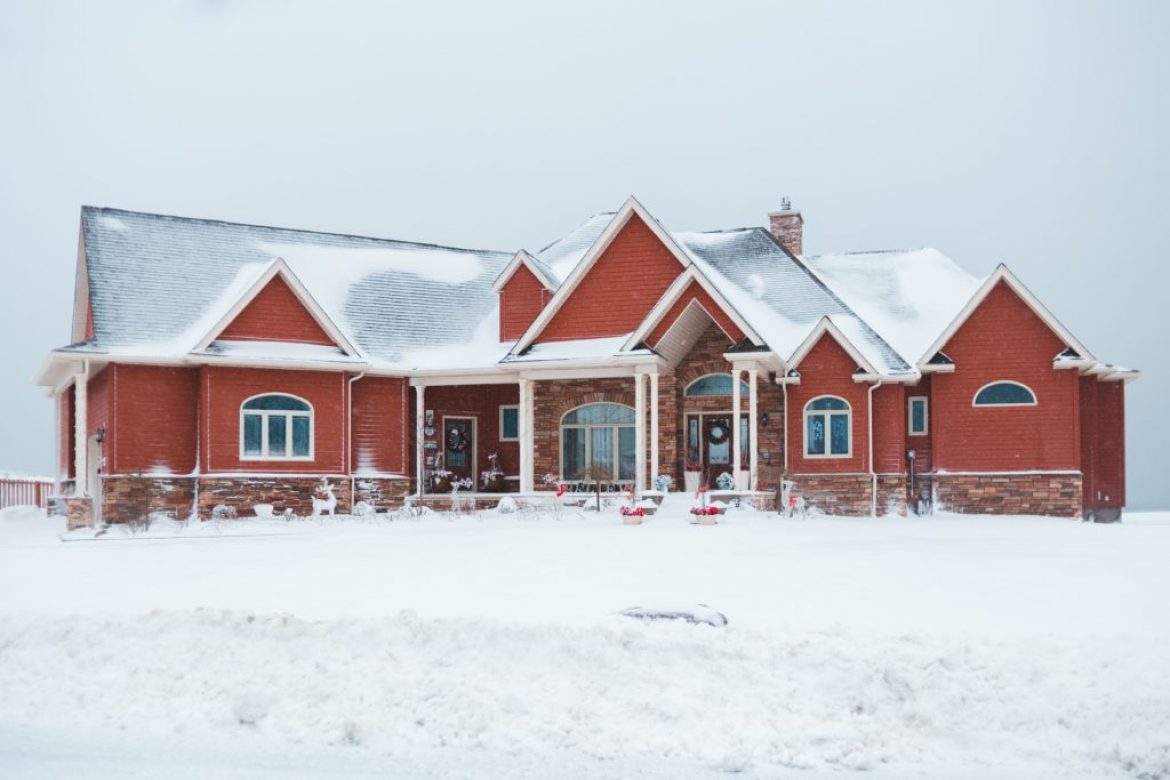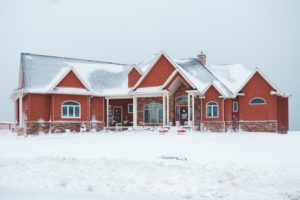How Colorado Winters Can Damage Your Siding


Siding is meant to be strong and durable in order to protect your home from the elements and keep heat sealed inside. However, Colorado winters can be brutal and there are a number of incidents that can lead to damaged siding, causing your home to get colder and increasing your heating bill. It’s important to keep an eye out for winter damage and repair it is as quickly as possible in order to prevent it from worsening.
Below are the most common ways winter weather can damage your siding.
Cracked or Broken Siding
Vinyl siding is especially vulnerable to the cold weather and becomes brittle when exposed to temperatures below freezing. While vinyl, unlike aluminum, doesn’t dent — this does mean it’s vulnerable to cracks.
You’ll rarely see an entire panel of vinyl siding come off in the winter. But snow from snow blowers, debris blown in the wind, and even icy snowballs can all easily crack or break vinyl siding. The cracks allow heat to escape and let moisture inside unless the damaged siding is replaced.
Moisture Damage
Water penetration and moisture damage can be particularly harmful to various types of siding. Moisture damage is most often a problem when ice collects in eavestroughs. Often if the eavestroughs aren’t connected properly, melting ice and snow can drain incorrectly and be forced underneath the siding and leak into the home.
Heavy snow can wear off the lamination on wood siding, exposing it to moisture and causing rot.
Rot and moisture buildup can harm the roof and interior, as well as cause significant structural damage if its not taken care of immediately.
Missing or Dislodged Siding
Winter storms often dislocate siding, removing a defense against heat loss and moisture. Even if the siding doesn’t come completely off, if it is no longer interlocked properly, it can result in poor insulation and even water damage.
When looking for damage to siding during the winter, keep an eye out for overhanging lips and listen carefully for the sound of loose siding panels flapping against the side of the house because of the wind.
If the siding isn’t damaged, you may simply be able to return it to its interlocked position without the need for repairs. However, damage to the locking mechanisms or the siding itself may require a full replacement.
Denting
Denting is a problem specific to aluminum siding, and often comes from the impact of wind-blown debris, hail, and wayward ice from snowblowers. While it typically doesn’t cause internal damage, denting can cause an obvious external aesthetic damage that can lessen the value of your home unless repaired or replaced.
Why Use Fiber Cement Siding?
Fiber cement siding is made from a combination of sand, cement, and cellulose fibers and works well as a defense against melting snow and ice, as well as a guard against the buildup of mold and mildew.
Fiber cement also has a number of advantages over wood and vinyl when it comes to surviving harsh winter weather. For one, it doesn’t expand or contract as the temperature changes so it doesn’t endure extra breakage with cold weather alone. It’s also water-resistant to prevent the rot that wood sidings are otherwise vulnerable to.
Additionally, as one of the most durable sidings, it’s much more difficult for animals to chew through — this is an especially common threat in the wintertime when they seek warmth.
Siding Pro Can Help You Hold Out For the Winter
Siding Pro’s Kevin Orf takes pride in his reputation as the pickiest siding contractor in Colorado Springs. He’s passionate about quality, service, and attention to detail that you won’t find anywhere else. Siding Pro specializes in exclusively James Hardie fiber cement siding — the ideal choice to hold up against Colorado’s harsh winters. For help winterizing your siding, reach out with any questions right away.






